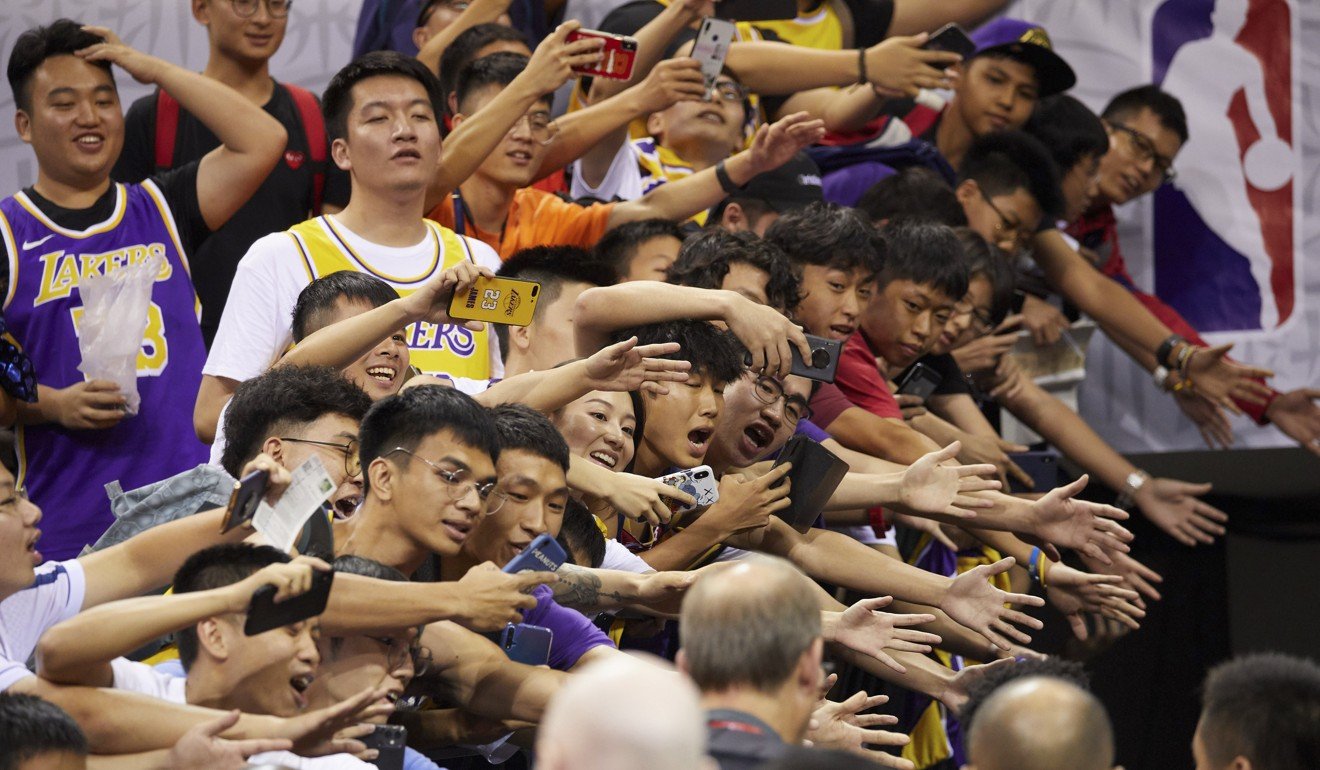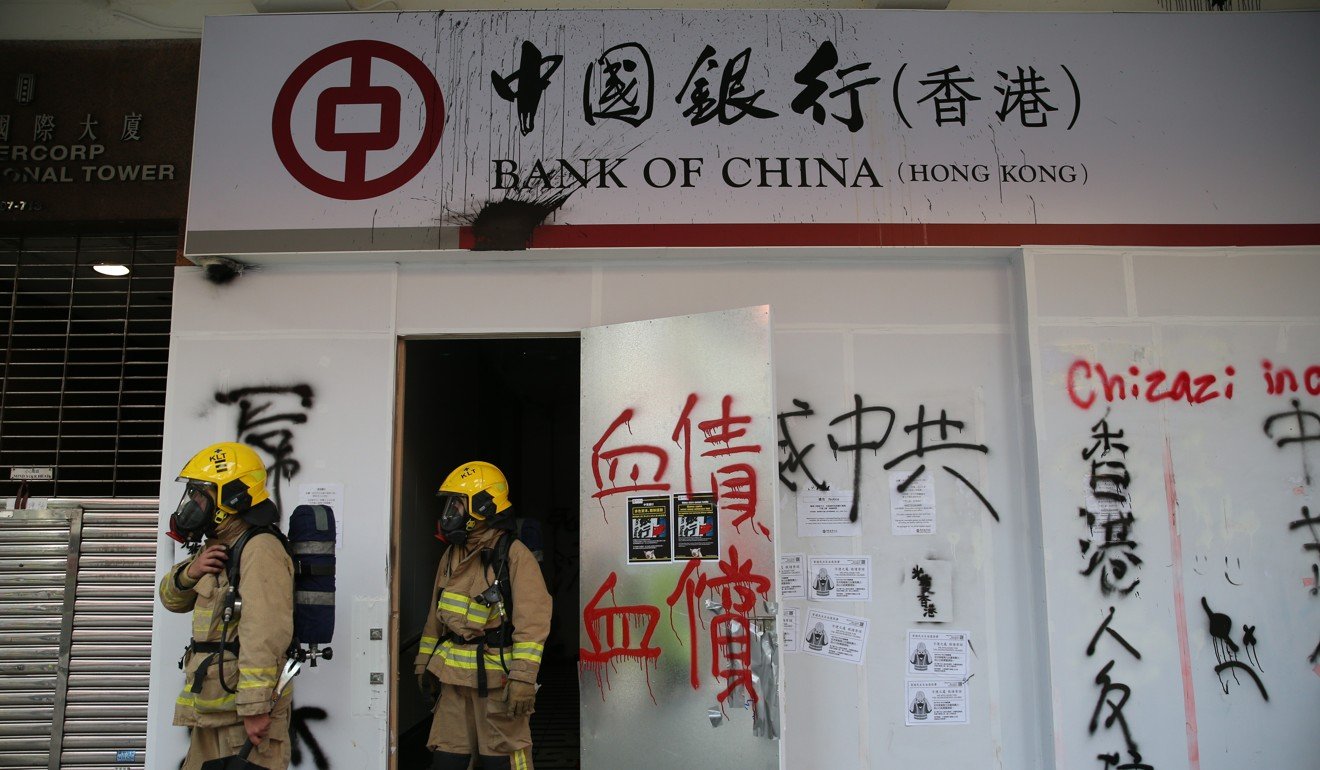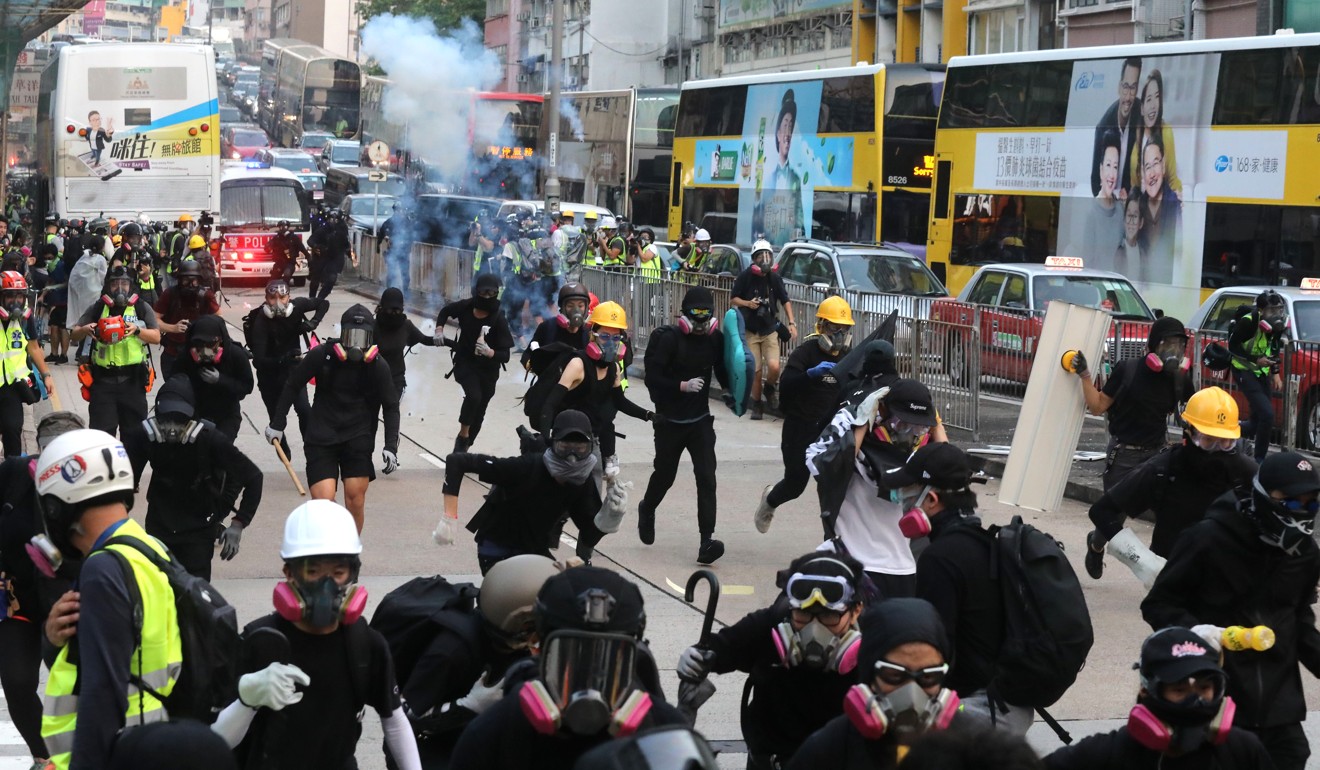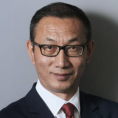With an image containing just seven words, which existed for merely a few hours before he deleted it, the October 4 tweet by Houston Rockets general manager Daryl Morey should definitely count among the most expensive ever posted on the platform.
His tweeting of the slogan “Fight for freedom, stand with Hong Kong” – one frequently used by
in the city – immediately set off an outcry in mainland China, angering tens of millions of Chinese
fans and threatening billions of dollars in revenue.
It also ignited a geopolitical firestorm that saw Chinese and US politicians, media commentators, NBA owners, basketball legends and fans all weighing in and slugging it out with their views on freedom of expression, the rise of China and its colonial humiliations, China’s perceived bullying of foreign companies, protesters waving American flags in Hong Kong and China’s national sovereignty.
A couple of weeks later, raw emotions may have started to calm down but major questions on the tweet’s implications are still being debated and definitive answers remain elusive.
For instance, many people outside China wonder whether the Chinese government deliberately provoked such an overreaction to something seemingly off the cuff so it could force foreign companies and organisations to understand the importance of self-censorship when it comes to the vast Chinese market, or whether it is so inept when it comes to public relations that it fails to grasp the Streisand effect, which means inadvertently drawing more public attention to something by trying to censor it.
In this case, many believe the intense international media coverage has magnified the Hong Kong protests and thus caused serious damage to China’s image among the millions of NBA fans around the world who are otherwise apolitical.
While that reasoning may seem valid, the reasons behind China’s extraordinary reaction or overreaction are much more nuanced and intricate.
Outside observers may have concluded that it was a government-orchestrated campaign mainly because of the speed and scope of reactions from Chinese state-owned media organisations, internet users and companies. Within hours of Morey’s tweet, these news outlets started running articles online, blasting Morey for supporting the Hong Kong protests. China Central Television, which broadcasts NBA games, and the Houston Rockets’ Chinese corporate sponsors – including tech giant Tencent and sportswear brand Li Ning – all announced they would suspend business with the team.
It may be hard to believe, but the ensuing furore was born more of spontaneity than government orchestration, even though Chinese officials may have encouraged it.
China’s political climate has changed dramatically since
came to power in 2012 and replaced Deng Xiaoping’s philosophy of “keeping a low profile and biding one’s time” with a more assertive and populism-driven nationalistic policy at home and abroad. Xi promised that China would “stand tall and firm in the East” as a new world power, and has launched a campaign to instil and strengthen confidence in the Communist Party’s own path, theory, system and culture in the face of a mounting pushback from Western countries led by the United States.
This has led to a swelling of nationalism and patriotism across society as officials and ordinary people alike felt encouraged to take on what are perceived to be slights or insults from foreigners or foreign countries – many of which they were more willing to let slide in the past.
As Chinese society has become more ideology-driven, individuals and companies alike don’t need any prompts from the authorities to act, not least because they don’t want to be seen as politically incorrect.
In the case of Morey’s tweet and the subsequent tussle with the NBA as a whole, many Chinese genuinely believe that as the Houston Rockets and the NBA have reaped millions of US dollars from the Chinese market each year, they should not have spoken in favour of something China feels strongly against.

Many Chinese genuinely believe that as the Houston Rockets and the NBA have reaped millions of US dollars from the Chinese market each year, they should not have spoken in favour of something China feels strongly against. Photo: AFP
This has brought into the open a much more important point, which the outside world has yet to fully appreciate: while the people in Hong Kong see their demonstrations as legitimate demands for more democracy and less interference from Beijing, people on the Chinese mainland see attempts to seek independence as a matter of national sovereignty.
Following Morey’s tweet, Joe Tsai, owner of the NBA’s Brooklyn Nets and a co-founder of tech giant Alibaba Group, issued a long open letter to NBA fans, which provided good historical insights and arguments.
Citing the Opium War and Japan’s invasion of China as examples of “heavy baggage” to explain why the country often reacts strongly to threats to its sovereignty, he said “supporting a separatist movement in a Chinese territory is one of those third-rail issues, not only for the Chinese government, but also for citizens of China”.
Alibaba owns the South China Morning Post, and Tsai is also the Post’s chairman.
As protests have turned increasingly violent in Hong Kong, particularly targeting Mandarin-speaking Chinese and properties owned by mainland Chinese companies and entities, mainlanders’ feelings towards Hong Kong are also getting stronger.
As frequent readers of this column would know, I have long argued that the authorities in Hong Kong and Beijing should bear the larger share of blame for the unrest in the city because of their incompetent and poor governance.
But images of black-clad protesters waving American flags, begging US President Donald Trump to liberate Hong Kong, and beating up those who say Hong Kong is part of China have played right into the hands of the Chinese government, which is promoting the narrative that some protesters in Hong Kong are in cahoots with American and other Western forces to split Hong Kong from China. This has fuelled fear and anger among ordinary mainlanders.

Violence towards Mandarin-speaking Chinese and properties owned by mainland Chinese companies and entities has fuelled mainlanders’ strong feelings about the Hong Kong protests. Photo: EPA
It is interesting to note that those on the mainland used to hold deep envy for Hong Kong’s capitalist system and rule of law under the “one country, two systems” formula, and more importantly sympathy for their fights for more democracy and to protect their way of life.
Indeed, back in 2003 when half a million people took to the streets to demonstrate against the legislation of the anti-subversion national security law or even the student-led protests against national education in 2012, one could hear voices of support or sympathy among the mainlanders in Hong Kong and China. But the current protests have elicited nothing but anger from them.
Some overseas media reports tend to play up the point that the unrest in Hong Kong has posed the biggest challenge to Xi’s leadership since he came to power nearly seven years ago. This is hardly the case if one takes the pulse of the mainlanders’ strong feelings towards protests in Hong Kong.
If anything, the swelling of strong feelings would only help strengthen Xi’s hand in being tough on the Hong Kong issue, as this has become a matter of national sovereignty, making it difficult for the Chinese leadership to adopt a more flexible approach.
Meanwhile, the intense coverage over the NBA issue, highlighting what the international media describes as the Chinese government’s bullying of foreigners and foreign companies exercising their right of free speech, should also serve as a lesson for Beijing.
Because of
and massive propaganda machine, the central government is widely believed to be able to tightly control how messages and debates on issues of popular interest are circulated on the Chinese internet. This is true, up to a point.

The Hong Kong issue has become a matter of national sovereignty, making it difficult for the Chinese leadership to adopt a more flexible approach. Photo: SCMP / K.Y. Cheng
On many occasions, however, Beijing has been led into awkward positions, particularly by the rise of the Little Pink, China’s angry young digital warriors. Different from “the 50 cent gang” – internet commentators paid to praise the government – these young people, known as xiaofenhong in Chinese, take it upon themselves as true patriots to trawl the internet and attack anyone or any company displaying or voicing any slight against the country, particularly targeting foreigners or Chinese nationals in foreign countries.
As they act with intense fervour in the name of patriotism, the Little Pink often succeed in whipping up seemingly minor incidents or off-the-cuff remarks into events meriting national attention, prompting the state media to play along.
This could help explain why a number of foreign companies in China have found themselves in hot water and compelled to release clarifying statements or take remedial action after they were accused of harbouring anti-China intent.
The latest example is Maserati China, the mainland branch of the Italian carmaker, which was compelled to release a statement to distance itself from the Taiwanese Maserati distributor, which decided to sponsor the upcoming Golden Horse film festival in Taipei – which Beijing has decided to boycott as part of its toughening stance on Taiwan increasingly leaning towards independence. The Little Pink brigade and some state media may claim victory, but such a narrow-minded approach does not bode well for China’s image.
Another of Deng’s enduring legacies is his philosophy of pragmatism, which has served the country so well in the past four decades, as epitomised in his folksy saying: “It does not matter whether the cat is black or white, as long as it catches mice.”
As China rises in the world, its leaders and people still need to embrace Deng-style pragmatism to win more friends, instead of pushing many away simply because they are not politically correct. ■
Wang Xiangwei is the former editor-in-chief of the South China Morning Post. He is now based in Beijing as editorial adviser to the paper

Comments